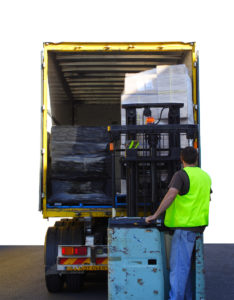When it comes to lightweight manufacturing, or reducing the weight of manufactured items, you may already be aware of its benefits and challenges. From vehicles to aircraft and public transit, lightweighting offers many transportation benefits. But lightweight manufacturing goes beyond the tools we use to get from one place to another, encompassing industries beyond manufacturing as well as many consumer goods.
Transportation and infrastructure
 Although it might not be top of mind for those outside the lightweighting sector, this manufacturing style goes so far to include transportation and infrastructure: Heavier goods mean more energy and resources for transportation, including road repairs and gas. When manufacturers ship completed goods via road, air, or sea, heavier finished products require more energy to transport and their wear and tear on transportation vehicles and roadways increase costs further. Plus, with weight restrictions on said vehicles, heftier items often mean fewer can ship at once, again leading to financial challenges as manufacturers must schedule more shipments.
Although it might not be top of mind for those outside the lightweighting sector, this manufacturing style goes so far to include transportation and infrastructure: Heavier goods mean more energy and resources for transportation, including road repairs and gas. When manufacturers ship completed goods via road, air, or sea, heavier finished products require more energy to transport and their wear and tear on transportation vehicles and roadways increase costs further. Plus, with weight restrictions on said vehicles, heftier items often mean fewer can ship at once, again leading to financial challenges as manufacturers must schedule more shipments.
Lighter-weight products reduce the need for multiple shipments as vehicles can transport more items weighing less given adequate space. Lightweighting also reduces energy consumption, as it requires less energy to transport shipments filled to the brim because the overall weight is lessened. And less weight in trucks, aircraft, and ships means vehicles themselves see less damage over time and infrastructure expenses go down.
Use
Whether they’re made to be used in homes, industrial settings, or elsewhere, lightweight products are often engineered to be stronger and work better than their predecessors. And while they may cost more, they also tend to last longer because of design improvements, offering longer life spans and fewer such materials in landfills.

In the case of one consumer good, a washing machine, lightweight manufacturing may soon see a major stride. While washer manufacturers in the past used 55-pound concrete blocks to stop the machines from moving during spin cycles, a 22-year-old designer introduced replacing the blocks with empty containers. Supply chains would have 55 pounds less per washer to transport, greatly reducing carbon emissions, and consumers would have less weight to deal with when moving the machines into their homes. Plus, they could simply fill the containers with water before use.
Automobiles
 One manufacturing sector already investing heavily in lightweight manufacturing is the vehicle industry. Auto producers like Toyota are moving to lightweight carbon fiber to reduce overall vehicle weight by a whopping 45-50% while maintaining and enhancing safety and interior space. And just like the washing machine weight reduction would make for less energy consumption in transport, these lighter-weight vehicles can travel further on a gallon of gas, thereby reducing emissions. In fact, Chrysler and Toyota were both named as lightweighting award winners.
One manufacturing sector already investing heavily in lightweight manufacturing is the vehicle industry. Auto producers like Toyota are moving to lightweight carbon fiber to reduce overall vehicle weight by a whopping 45-50% while maintaining and enhancing safety and interior space. And just like the washing machine weight reduction would make for less energy consumption in transport, these lighter-weight vehicles can travel further on a gallon of gas, thereby reducing emissions. In fact, Chrysler and Toyota were both named as lightweighting award winners.
As more manufactured goods go lightweight, designers and engineers must keep a close eye on safety, costs, and repair options. But, with more companies investing in research and development of lightweight products, manufacturing’s future seems both light and bright.
